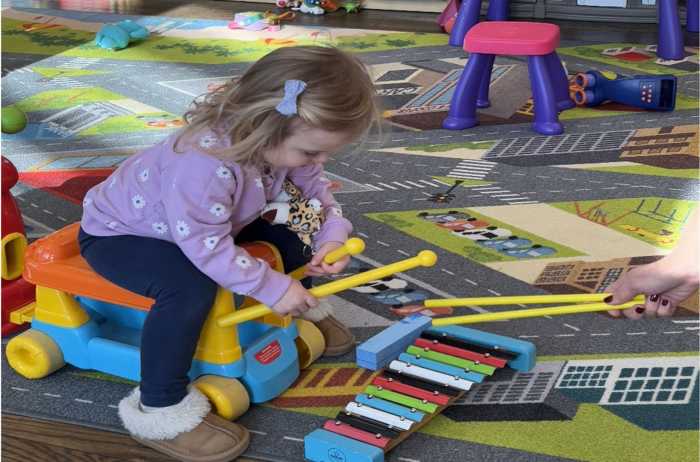
Why Is My Kid Always Sick?
Young children will often catch multiple colds and viruses in quick succession, which can be overwhelming and uncomfortable for them, and for you as their parent. Sometimes it seems like as soon as they get better from the last cold, a new virus is just around the corner.
Dr. TJ Gold, pediatrician at Tribeca Pediatrics states on the practice’s podcast, Tribeca Pediatrics: On Call, that children under three years old are, “what we call, today’s ‘post-covid kids.’ They’re now experiencing all of the typical illnesses and repeated exposures that were avoided during the lockdown, and they’re getting these illnesses all at once, back to back.”
How parents approach providing care to their perpetually sniffly toddler, is contingent on which symptoms are considered typical, or normal, and what might be a red flag to a pediatrician. Dr. Gold states that, “8-10 colds in a cold and flu season or a school year, is nowhere outside of the ordinary.” The vast majority of children’s seasonal illnesses are just viruses, and they have to pass on their own. This is why pediatricians don’t normally prescribe medications for cold and flu. Over-the-counter symptom relievers are usually enough to treat low grade fevers and stuffy noses.
What’s not considered typical according to Dr. Gold, would be a child who has had “three cases of pneumonia this season, or since birth. They’ve had multiple hospitalizations for unusual illnesses, extended or recurring fevers, that each time, last more than a week. Or they’ve had pain out of proportion to other symptoms.” These are all symptoms that would trigger a red flag to a pediatrician, and might warrant further treatment. If you suspect your child’s symptoms may not be typical of a common cold and flu cycle, it’s always best to speak to your pediatrician.
Some ways that parents can provide at-home relief to their toddler cycling through a normal bout of colds in a season, are to sit with them in a steamy bathroom with the shower running before bed, to clear dry, crusty mucus before they lay down. Parents can also melt a natural cough drop in a sippy cup of warm water, so children can drink it like an elixir. Giving your small child a whole cough drop, presents a choking concern. If your child is under 1 year old, make sure there’s no honey in the cough drops.
For the little ones, it helps to prop them upright in a baby carrier to use gravity to help drain their mucus. Dr. Gold also suggests that parents should focus on a healthy diet during the cold and flu season, and that taking an extra vitamin doesn’t hurt, “but a vitamin won’t prevent viruses, or stop your toddler from licking another kid at daycare.”
Additionally, Dr. Gold states that “kids are unable to expectorate, which means bring up mucus effectively until they’re much older. And they can’t efficiently blow their noses, instead they just sniff it right back up. So this cycling mucus is why kids sometimes vomit after they cough, as their way of expectorating.” Dr. Gold recommends, the next time you are in a bathtub, or swimming pool, “demonstrate how bubbles come out of your nose and encourage your child to do the same.” This helps to give your child a visual model of how to blow air out of their nose, which teaches them how to expectorate as they grow up.
Teach your children good hand washing, and discourage them from biting their fingers or touching their eyes. You can always separate the family’s toothbrushes when someone is sick, to prevent the entire family from getting every cold, every time. And, of course, if you are ever unsure if your child’s constant cycling of illnesses is normal, or requires further attention, the best thing to do is speak to your pediatrician. They can help you tailor the solution to your family, and your child’s needs.
Information provided by Tribeca Pediatrics, recently opened in Midland Beach and Willowbrook Park, Staten Island. Click here to learn more about Tribeca Pediatrics.
SPONSORED CONTENT BY TRIBECA PEDIATRICS
Psst… Check out Prioritizing Breast Health In 2024 And Every Year




